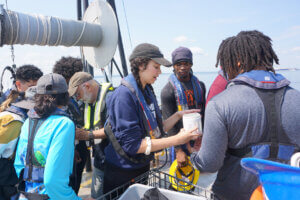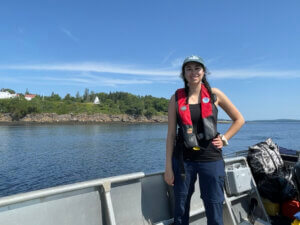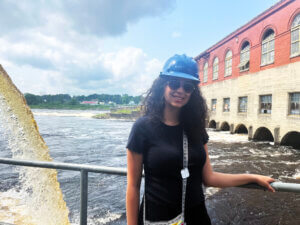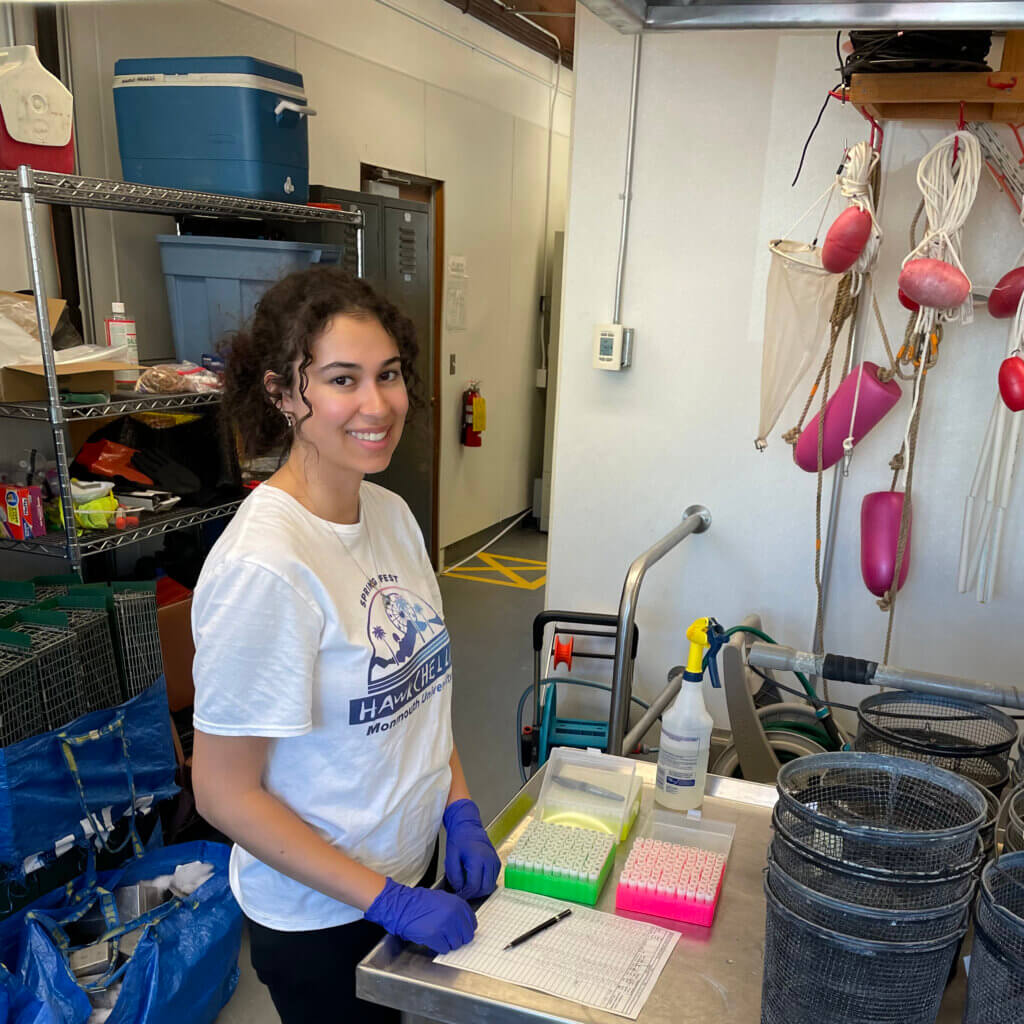
Marie Mauro, a senior marine and environmental biology and policy student at Monmouth University, was among 18 U.S. students accepted to participate this summer in the National Oceanic and Atmospheric Administration’s (NOAA) Inclusive Fisheries Internship (IN FISH) program. IN FISH is a partnership between NOAA Fisheries and research partners in academia and non-governmental research institutions which aims to build a more diverse and inclusive workforce.
For the second consecutive year, IN FISH included a two-week course held at Monmouth. Students from Puerto Rico to California stayed in campus housing and made field visits to marine research facilities and ocean-related businesses in the region before fanning out across the country to complete eight-week internships at labs and offices administered by NOAA and its partners.
Mauro spent her summer studying climate change threats to the endangered Atlantic salmon at the NOAA Fisheries Northeast Fisheries Science Center at its Orono, Maine, Field Station and Maine Sea Grant. We caught up with Mauro to ask about her work and experience in the program.
Q: We’d love to hear about your summer. Can you tell us about your research and what it was like working at the Orono Field Station and Maine Sea Grant?

For my research project, I was analyzing water temperature data in the East Branch of the Penobscot River in Maine from a 20-year period to compare when thermal events occurred for Atlantic salmon. I analyzed water temperature data provided to me from the Maine Department of Natural Resources and did quality control and quality assurance. I imported the data to RStudio, where we identified various inconsistencies in the dataset and selected the years with data consistency to utilize. We used thermal thresholds from scientific literature to determine the duration and frequency of thermal events occurring at three sites in the East Branch. This research project greatly improved my R skills. I also learned how to work with inconsistent datasets.
I had the opportunity to participate in bi-monthly hydroacoustic surveys in the Penobscot Estuary. I extracted otoliths from riving herring. My job was to identify and count predators. I also got to see various Atlantic salmon sites, including the Milford Dam, where there is a fish pass and two Atlantic salmon hatcheries. Overall, my experience was very fulfilling, and I am grateful to have worked with fantastic mentors, John Kocik and Justin Stevens.
Q: IN FISH just completed its third year, including an initial year as a virtual program during the pandemic. What do you think makes this program so valuable?
The value of the IN FISH program can be attributed to several key factors. IN FISH gives undergraduate students the unique opportunity to undertake independent research with the guidance of mentors. This hands-on experience allows undergraduate students to develop value research skills and gain insights on the important work of NOAA Fisheries. This program facilitates networking opportunities for interns. Interns meet and interact with like-minded students that share similar academic interests. The cohort aspect of this program makes it so special in that regard.
Q: Your IN FISH cohort included students from 16 universities and 10 U.S. states and territories. What was their impression of Monmouth University and the Jersey Shore area?
The IN FISH cohort thought that the Jersey Shore was beautiful but were surprised that beaches were not free. They really enjoyed visiting Sandy Hook on our field trips and visiting Pier Village on our down time. They thought that campus was beautiful, especially the Great Hall. They thought that the campus was very walkable and there were lots of areas to study. Everyone got along well, and we all bonded during our time here.

Q: What would you say to a student considering applying for an IN FISH internship?
IN FISH provides an opportunity to gain experience in fisheries science. If fisheries science interests you, then definitely apply to the program. You will have to be comfortable being away from home for 10 weeks in the summer and traveling to a new place somewhere in the country. This program could provide you with insight into what you could do in your future career. It is a rewarding experience and I highly recommend this program to anyone who has an interest in fisheries.

